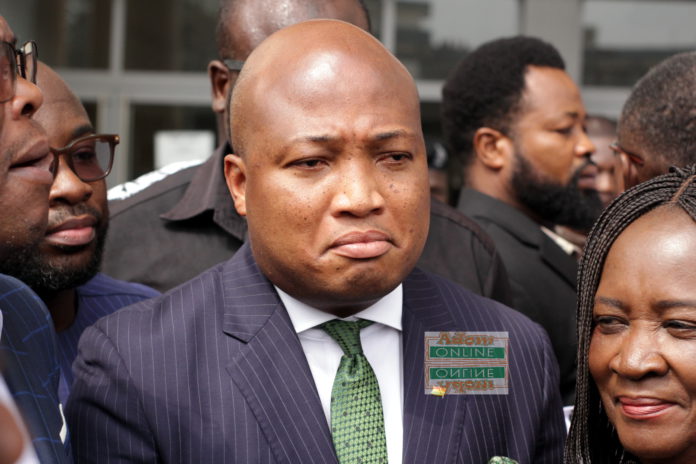The Member of Parliament for North Tongu says his constituents and residents of the Volta Region who were affected by floods have been put through the wringer since the spillage of the Akosombo Dam.
Speaking on Joy FM’s Super Morning Show, he said that the devastation caused by the spillage is one they have not witnessed in the region for six decades.
He stated that after losing their properties and being forced out of their homes due to the floods, many of the homes are now inhabitable.
“We really have been tested. I’ve never seen anything like that in my lifetime. We are told that it was 60 years ago, in 1963 when the dam was being constructed, that we saw this level of flooding. But even that, from what the elders tell us, it was not this devastating.”
“To have even story buildings submerged, entire communities taken over by these floodwaters…we have known no peace. Entire communities and entire lives have been changed for good. It is to the glory of God that there was no death.”
Mr. Ablakwa stated that about 40,000 people were displaced and 1500 homes have been destroyed. He added that as a result, even though the water has receded, people have no home to go back to.
“This crisis is not over,” he stressed.
Many affected residents are being placed at about 21 camps made available with the help of Ghanaians who have donated to the people, he said.
He expressed displeasure with the central government, stating that aside from the donation made by the VRA, there has not been any action or funding from the government.
“There is a need for the government to utilize the contingency fund. The central government has not dedicated any funding apart from the allocation made in the 2024 budget, and we all know that there is a world of difference between allocation and the actual release.”
“The point is that these are the reasons why we have a contingency vote…Now is it that such a big emergency, a big humanitarian crisis, the contingency vote is nowhere? I have not been impressed with the central government.”
Mr. Ablakwa said that with the aid of private individuals, companies, and Ghanaians, a housing program has been put in place. Lands have been made available for people who would like to help build homes for families in partnership with the chiefs and his office.
“We have been able to relocate the first 300. We did that in seven weeks. It tells you that when we put ourselves to it, we all put our shoulders to the wheel, we eschew excuses, we can make it,” he noted.
He added that another housing project is ongoing in Mepe, which they are hoping to complete soon and hand over to residents.
Meanwhile, Mr. Ablakwa assured everyone who had donated that they have set up structures to ensure accountability and transparency.
“We’ve set up the Accountability Elders Council. These monies don’t come to me. They receive the funds; and an account has been set up. At the end of this entire disaster, we will invite auditors to audit everything that has come in – every grain of rice, every bottle of oil, every canned fish, everything will be audited.”
Background
On September 15, 2023, Ghana’s foremost electricity generator and manager of the Akosombo and Kpong Dams, the Volta River Authority (VRA), embarked on the spillage of excess water from the dams.
The event, which became an issue of national concern, resulted in substantial impacts on several communities, especially those located downstream of the dams, affecting many lives, livelihoods, and the socio-economic fabric of the lower Volta basin, as well as an extended impact on other communities outside of that terrain.
The VRA announced an end to the spill on October 30—after 45 days of releasing water from the dams’ reservoir.

